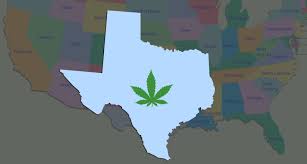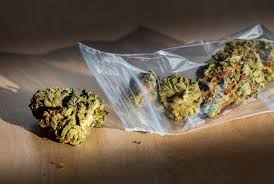It’s Weed Legal In Texas, The question, “Is weed legal in Texas?” continues to spark curiosity among residents and visitors alike. Marijuana laws in Texas remain some of the strictest in the United States, but recent efforts to reform cannabis policies have gained traction. In this article, we’ll break down the current status of marijuana legality, explore what is permitted, and review possible future changes to Texas cannabis laws.
Current Legal Status
As of October 2024, recreational marijuana is illegal in Texas. Possession, sale, or use of recreational cannabis is a criminal offense, although the severity of the punishment depends on the amount of marijuana involved. However, Texas has made some limited progress by allowing the use of medical cannabis through a highly regulated program.
Penalties for Possession
- Under 2 ounces: Class B misdemeanor, punishable by up to 180 days in jail and a fine of $2,000.
- Between 2-4 ounces: Class A misdemeanor, with up to 1 year in jail and a $4,000 fine.
- More than 4 ounces: Considered a felony, with longer prison sentences and higher fines.
These laws reflect Texas’ traditionally conservative stance on cannabis. Despite increasing public support for legalization, the state has maintained harsh criminal penalties for even small amounts of marijuana.
Medical Cannabis in Texas
Texas has a limited medical marijuana program under the Compassionate Use Program (CUP). Initially launched in 2015, this program has gradually expanded to cover more qualifying conditions, but it remains highly restrictive compared to programs in other states.
Who Qualifies for Medical Marijuana?
Patients can access low-THC cannabis products (containing no more than 1% THC) if they have been diagnosed with conditions like:
- Intractable epilepsy
- Cancer
- Multiple sclerosis
- Post-traumatic stress disorder (PTSD)
- Autism or neurodegenerative diseases
While CUP offers some relief to patients, the products available contain very low levels of THC, making them much less potent than traditional marijuana. Furthermore, smoking marijuana remains illegal, even for medical users—only oils, tinctures, and edibles are allowed.
Local Reforms and Decriminalization Efforts
Some major cities in Texas, such as Austin, Dallas, and Houston, have taken steps toward decriminalizing marijuana. Although these measures don’t legalize marijuana, they reduce the penalties for small amounts of possession.
- Austin: Police have deprioritized arrests for small amounts of marijuana.
- Dallas: First-time offenders may avoid jail through diversion programs.
- Houston: Minor possession cases result in citations rather than arrests.
These city-level changes reflect a growing shift in attitudes toward marijuana, but they do not override state law. If caught with marijuana outside these jurisdictions, individuals still face criminal penalties.
Will Texas Legalize Weed Soon?
Although efforts to fully legalize marijuana have gained some momentum, significant opposition remains in the state legislature. In recent years, several bills aimed at legalizing recreational marijuana or expanding medical access have been introduced but failed to pass. Texas Governor Greg Abbott has expressed limited support, saying he’s open to reducing penalties but has not endorsed full legalization.
Polling data shows that public support for marijuana legalization is growing in Texas. Surveys indicate that 60-70% of Texans support legalizing medical marijuana, and around 50-55% favor legal recreational use. This changing attitude could influence future elections, as advocates push for reforms and younger, pro-legalization voters become more politically active.
Conclusion
To summarize, the answer to “Is weed legal in Texas?” is no—recreational marijuana remains illegal, and medical cannabis is allowed only under strict regulations. While certain cities have adopted decriminalization measures, state law still enforces harsh penalties for marijuana possession. As public opinion shifts, there is potential for future reforms, but for now, Texas remains one of the stricter states in the U.S. regarding cannabis use.
If you plan to travel to Texas or reside in the state, it’s essential to stay informed about local laws to avoid legal trouble. Though marijuana may be gaining acceptance nationwide, Texas’ cannabis laws require caution and compliance.
You Might Also Like These:



